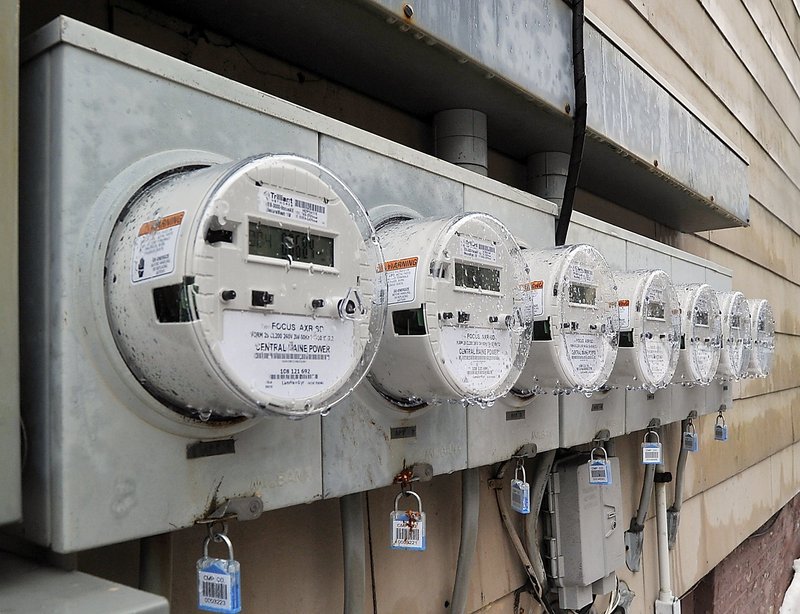PORTLAND – Smart meters may soon become optional.
The staff of Maine’s Public Utilities Commission released a report Thursday proposing that residential and small commercial electricity customers be allowed to opt out of Central Maine Power Co.’s smart-meter conversion.
The report follows a series of complaints to the PUC by customers who say that the wireless meters can cause health and other problems. It suggests two opt-out options.
One would allow customers to keep their mechanical meters for an upfront fee of $40 and subsequent fees of $12 per month.
Under the other option, customers who pay an initial $20 fee and $10.50 per month could have their smart meters configured so that they don’t transmit data — the “transmitter-off” option.
Either option would require CMP to read the meters manually every two months. The report says the fees would help CMP cover the higher cost of maintaining the meters.
Late last year, the utility began a $200 million project to replace 600,000 mechanical meters with wireless digital meters. Half of the cost is being paid by the federal government, which is pushing for a modernized electricity grid.
By early April, more than 157,000 of the new meters had been installed.
Instead of using gears and dials as mechanical meters do, smart meters record energy data digitally and have no moving parts, according to CMP’s website. The devices transmit data wirelessly, eliminating the need for readings.
CMP spokesman John Carroll declined to comment on the PUC report Friday. He said the company received it Friday morning and was still reviewing it.
The conversion to smart meters has sparked debate and numerous complaints to the PUC.
Some opponents, including Suzanne Foley-Ferguson and Elisa Boxer-Cook of Scarborough, say the commission did not adequately examine the impact of the wireless devices on health, safety and security before it approved CMP’s plan.
Opponents asked the PUC to create an opt-out option. They also requested that CMP be ordered to stop installing smart meters while health, safety and security issues are examined.
CMP has said that the complaints are without merit. The company told the commission there is no evidence that the intermittent radio transmissions made by smart meters negatively affect health.
In a written statement Friday, Boxer-Cook applauded the PUC report.
“I’m very pleased that the PUC staff has unanimously recommended not only opt-outs, but keeping the existing meters,” she said. “The PUC staff has spent months analyzing all the evidence and they’ve come up with a fair, reasonable, logical recommendation. This is a victory for the 5,000 people who have already opted out for reasons including smart-meter signals making them sick, and destroying their appliances, security systems and Wi-Fi connections.”
The report outlines a plan that would require CMP to call customers who have indicated they do not want smart meters to make them aware of the opt-out option.
Maine’s three utility commissioners will hear comments from smart-meter supporters and opponents on Thursday, and hold a conference with the parties to discuss the report on May 2.
Staff Writer Jonathan Hemmerdinger can be reached at 791-6316 or at:
jhemmerdinger@mainetoday.com
Send questions/comments to the editors.


